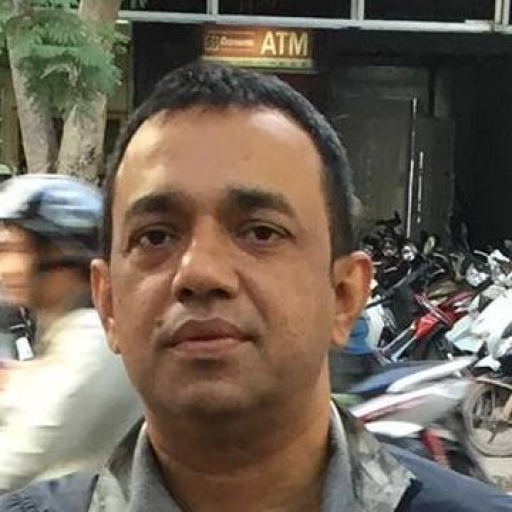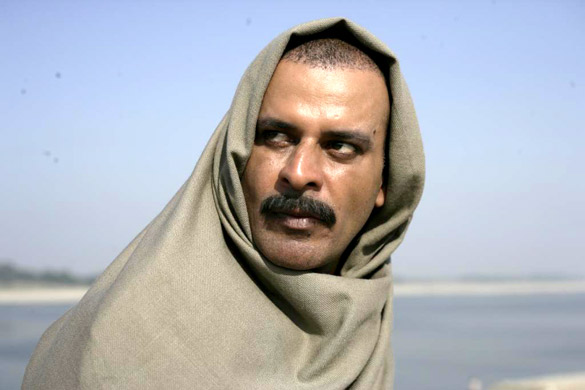Paragraph 1 My Translation
Ek bagal mein chand hoga, ek bagal mein rotiyan Moon on a side and food on other,
Ek bagal mein neend hogi, ek bagal mein loriyan Sleep on a side and lullaby on other,
Hum chand pe, Roti ki chadar daal kar so jayenge I will sleep on moon with mattress of food,
Aur neend se, Keh denge lori kal sunane aayenge And tell the sleep, lullaby tomorrow.
First paragraph is son’s word. He is showing options. Firstly moon Vs food, means ambition (moon) Vs current need (food). Secondly Sleep Vs lullaby, means comfort of future (sleep) Vs Hard work i.e. Means to attain it (Lullaby).
The son selects his options too, but negatively. He wants to sleep on moon with mattress of food. Meaning that forgetting the ambition, he wants to enjoy current need. He want to tell the sleep that lullaby tomorrow, means tell the comfort of future that hard-work tomorrow.
He sounds frustrated.
Paragraph 2 My Translation
Ek bagal mein khan-khanati seepiyan ho jayengi, Ruby on a side,
Ek bagal mein kuchh rulati sisikiyan ho jayengi, tears on other side,
Hum seepiyon mein, bhar ke saare taare chun ke aayenge, A lot of rubies we will gather,
Aur siskiyon ko, Gudgudi kar kar ke yun behlayenge, and tickle the pain, to laugh out the tear
Second paragraph is mothers reply. She is teaching her child, giving him hope.
She too is showing options. Ruby Vs Tears, means prosperity (Ruby) Vs Current pain during hard work (Tears). She too is selecting options, but positively. She wants to attain prosperity. Obviously hard-work comes between current tears and future prosperity. She is teaching to enjoy during the times of tears.
“Aur siskiyo ko gudgudi kar-karke yun behlaayege”, She is outstandingly telling to tickle the tear to make it laugh, meaning try to enjoy even at the time of tears. Don’t worry for current problem, suppress the tear and think about the bright future.
Paragraph 3 My Translation
Amma teri siskiyon pe koi rone aayega Mom, someone will come to cry with our tear
Gam na kar jo aayega woh phir kabhi na jayega Don’t worry, who comes won’t leave us ever
Yaad rakh par koi anhoni nahi tu layegi Make sure, you avoid any decision of disaster,
Layegi to phir kahani aur kuchh ho jayegi Otherwise, that can again be the game changer
The first word of this verse “mom” made me think most that this all poem is talk between mother and son.
Here, the son is gaining strength. He too is showing bright future. He hopes, good days will come and never goes away. But he is afraid too: something bad may happen, good days may come never. He wishes his mom to avoid any bad decisions and makes sure it won’t happen, good times do comes. Otherwise, things may stay as it is, he warns.
Paragraph 4 (Last) My Translation
Honi aur anhoni ki parwah kise hai meri jaan Either good happens or bad, who is worried?
Hadd se jyaada yeh hi hoga ki yahin mar jayenge Even the worst happening, that we are killed,
Hum maut ko, Sapna bata kar uth khade honge yahin We will move on even if worst outcome is paved
Aur honi ko, Thenga dikha kar khil-khilte jayenge Will laugh out louder and tease the mis-happenings made
Mom summarizes with further strength. She suggests not to worry what happens, even if it’s worst possible outcome. Even if the worst thing happens, we can ignore it and move on. We will be laughing out and tease the worst outcome as well. We will make sure that we are not worried at all even with worst thing that made to happen with us.
The last line, “Honi ko thenga dikhakar khilkhilate jayenge”: “we will move on laughing, teasing the mis-happenings to us” is the sentence with most strong meaning. I don’t think any better closing was possible.
I feel, this poem by Piyush Chawla is an outstanding piece of creation.
They say, poetry is like water, you can make it take the shape of your container or flow as per your wish. It’s ok to tell that I interpreted like this because I wanted to. Actually this is what poetry is.
The ‘Precedent medal of freedom’ winner, Pablo Casals, wrote that, “The art of interpretation is not to play what is written.” So this is my interpretation. You are free to disagree or focus differently.
(Author of this post: http://anubhuti7.blogspot.com/2017/05/an-interpretation.html)

